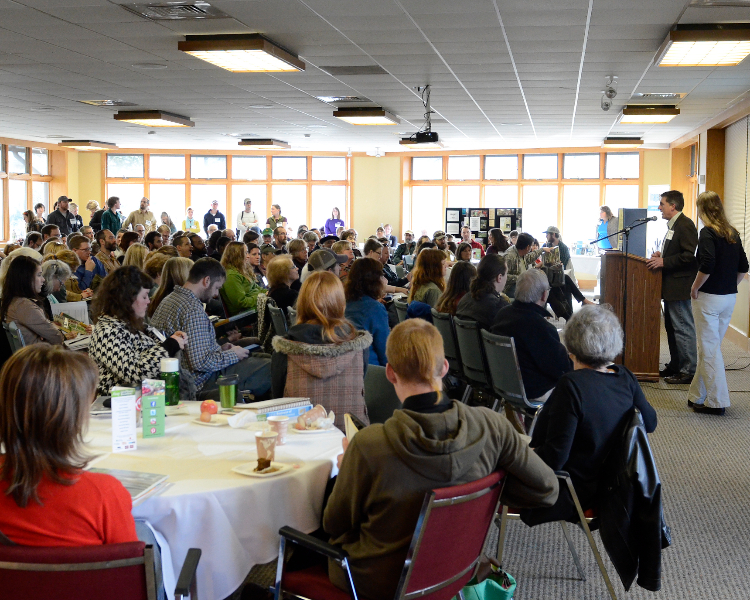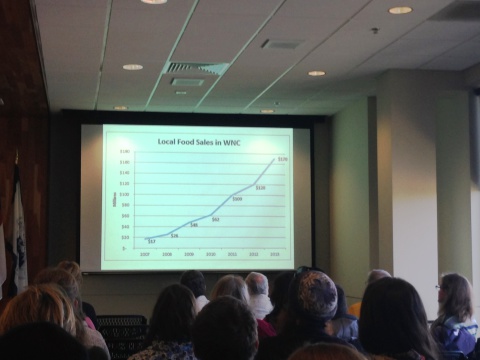Over 200 farmers and future farmers converged at UNC Asheville’s Sherrill Center for Appalachian Sustainable Agriculture Project’s Business of Farming Conference on Saturday, Feb. 14. The conference, now in its twelfth year, is an opportunity for farmers to discuss the business side of farming and make connections that help them market their crops more effectively.
This year marked a major move for the conference as it left its former home on the campus of Warren Wilson College. ASAP executive director Charlie Jackson said in his welcoming remarks that the conference had outgrown its old space. The new venue made room for more attendees and additional exhibitors, he noted.
Jackson offered attendees a glimpse into the importance of local agriculture in Western North Carolina. He pointed out that WNC contains 1/5 of the state’s farms but houses only 1/10 of the total population. He also referenced the 2012 Census of Agriculture, which showed that WNC had actually gained farmland in recent years. Jackson said that local foods sales are doing well in WNC as demand continues to rise.
Jackson also announced ASAP’s newest effort to supporting local foods through a cost share program that will reimburse farms for 50 percent of the cost of marketing materials used to brand their farm and products as Appalachian Grown certified. Bill Teague, chairman of the N.C. Tobacco Trust Fund Commission, presented ASAP with a check to support the new cost share program.
Devon Deal, of Deal Family Farms in Franklin, NC, set the stage for the conference’s presentations, noting that the event offered farms an opportunity to connect with one another and learn how to define themselves as a business. “A big part of what we do is educating consumers and promoting farming,” Deal said.
Conference presentations focused on a wide array of topics related to operating a farm as a business and allowed attendees an opportunity to learn from a variety of experts in the field. Workshops included information on direct sales strategies, business planning, agritourism, social media and legal topics. Attendees were offered an opportunity to learn from the presenters and to share their own stories of successes and failures with one another.
In addition to the workshops, the conference featured networking opportunities where attendees could interact with 34 area food buyers. The buyers discusses how to establish wholesale relationships and the necessary qualifications farmers need to meet in order to become a vendor. A number of professional consultants were also available for individual meetings with attendees on concepts including branding, access to capital, web design, social media and risk management.
Attendees were also treated to breakfast and lunch made from a smorgasbord of local food products.





Before you comment
The comments section is here to provide a platform for civil dialogue on the issues we face together as a local community. Xpress is committed to offering this platform for all voices, but when the tone of the discussion gets nasty or strays off topic, we believe many people choose not to participate. Xpress editors are determined to moderate comments to ensure a constructive interchange is maintained. All comments judged not to be in keeping with the spirit of civil discourse will be removed and repeat violators will be banned. See here for our terms of service. Thank you for being part of this effort to promote respectful discussion.